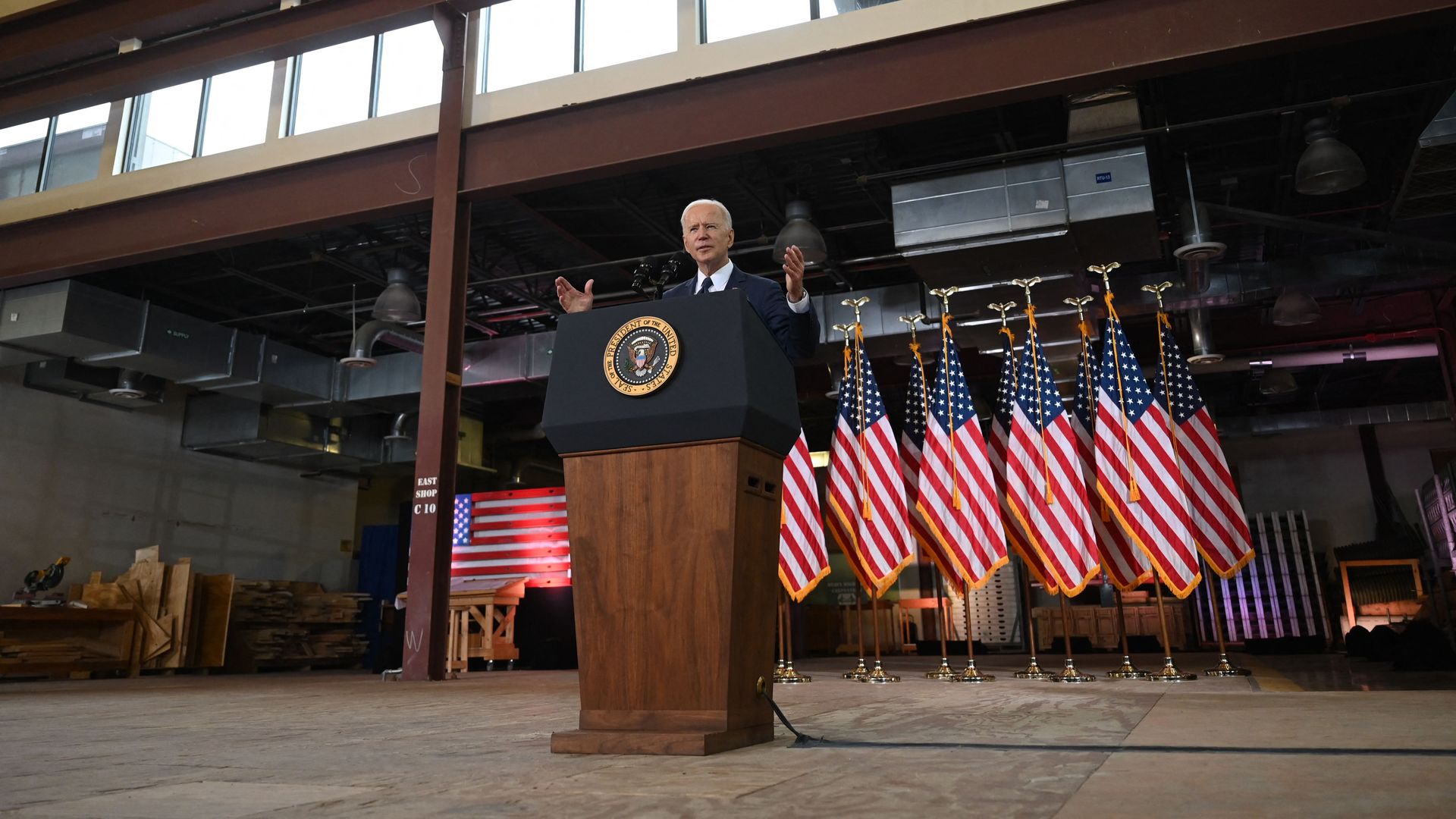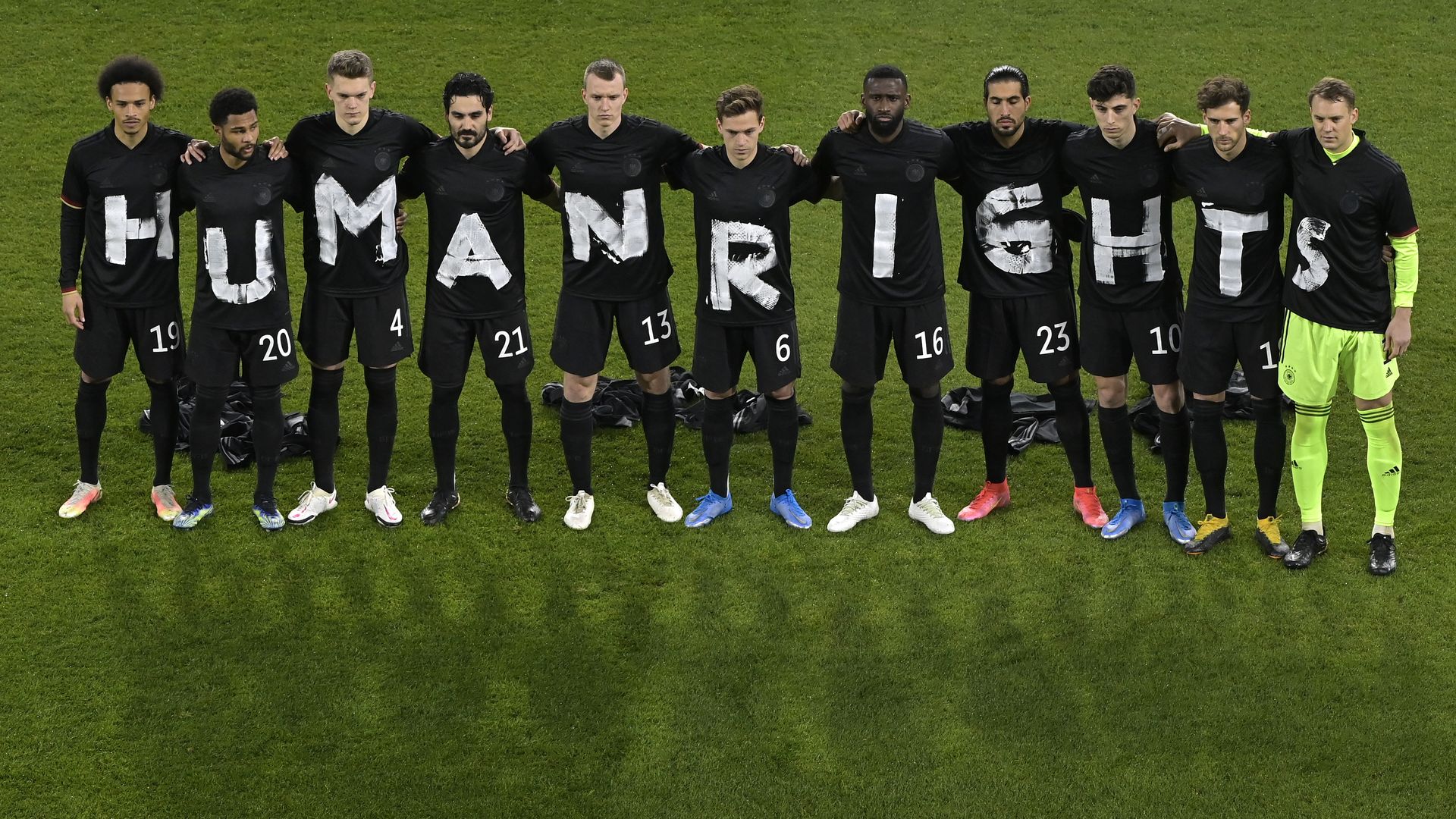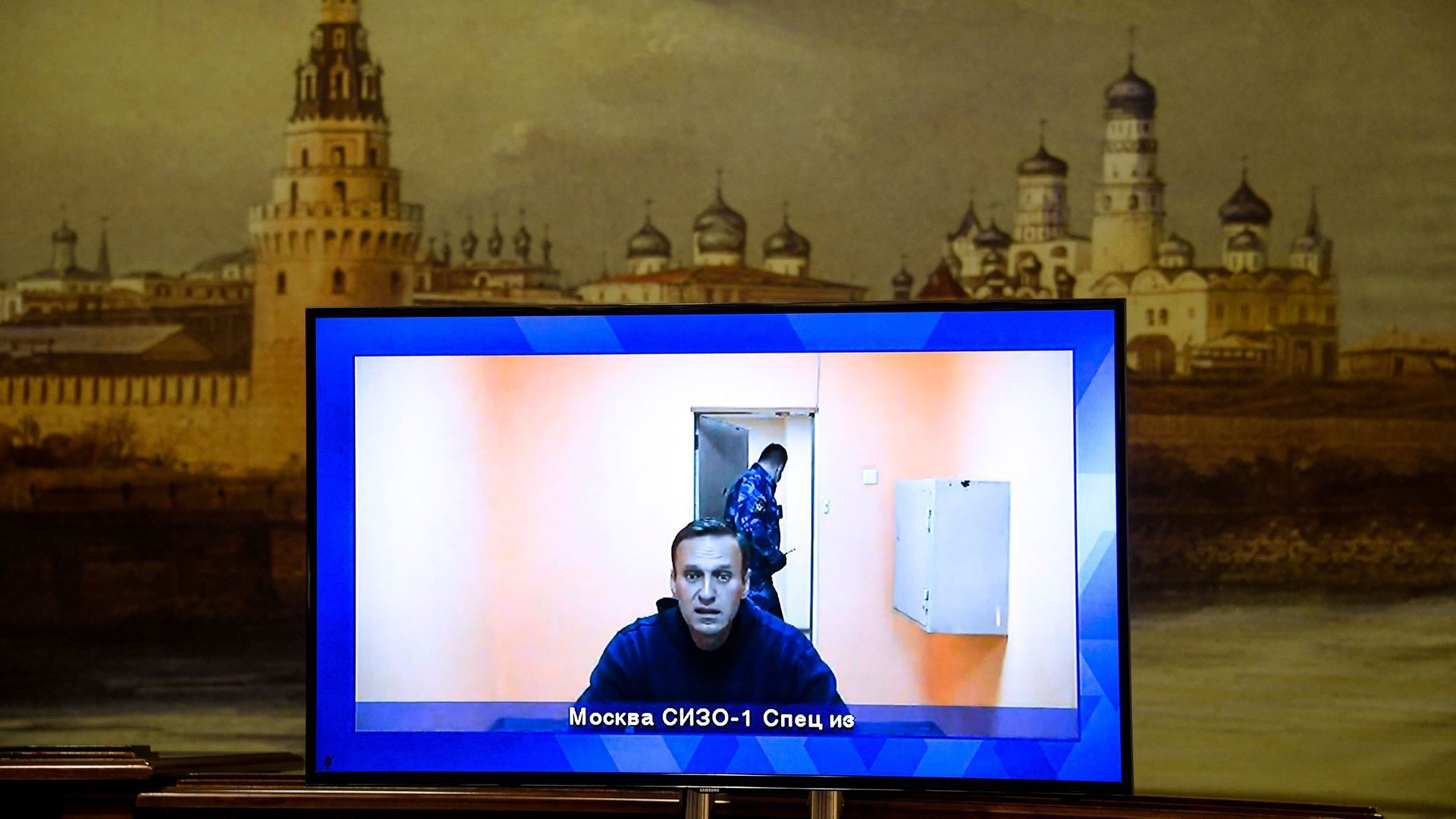| | | | | | | | | | | Axios World | | By Dave Lawler ·Apr 01, 2021 | | Welcome back to Axios World. - Tonight's edition (1,910 words, 7 minutes) starts in India and ends with a mystery.
New arrival? Sign up. | | | | | | 1 big thing: India's second wave ripples around the world |  Data: India Ministry of External Affairs; Chart: Danielle Alberti/Axios Facing a brutal new wave of coronavirus cases, India today made anyone over 45 eligible for vaccination. But the scramble to vaccinate as many people as possible has also meant sharply curtailing exports. Why it matters: The hopes of vaccinating the world have largely fallen on the shoulders of India, a vaccine manufacturing powerhouse and home to the world's largest producer, the Serum Institute. - Until recently, India was exporting most of the doses it was producing — a mix of donations to neighbors and other friendly nations, sales to countries like Saudi Arabia and the U.K., and contributions to the global COVAX initiative.
- Indian-made vaccines have gone to 82 countries.
- Then, after a long lull, cases began to surge. They are now at their highest point since mid-October and are continuing to climb precipitously.
- Vaccine exports, which had been ramping up, suddenly fell sharply. Rather than supplying the world, the Serum Institute appears to have redirected nearly its entire supply to the homefront.
Driving the news: India has not imposed an export ban and will continue to supply doses, including to COVAX, a government source tells Axios. But given "domestic requirements," the source added, "there is some recalibration of the supply schedules." - Another official, speaking to Reuters, put it more bluntly: "Right now we are dealing with an emergency situation. Whatever we have, we will use it," the official said.
- The government aims to vaccinate a minimum of 400 million people, up from 56 million at present (just 4% of the population), the official told Reuters.
By the numbers: India has exported 6 million doses over the last three weeks, with less than 2 million of those going to the COVAX initiative. - That's down from 31 million in the three prior weeks, of which 16 million went to COVAX
That's a crippling setback for COVAX, which is a critical source of vaccines for low-income countries, particularly in Africa. - COVAX had expected 71% of its first wave of distribution to consist of AstraZeneca doses produced at the Serum Institute, according to a preliminary forecast.
- A spokesman for Gavi, the vaccine alliance, said shipments expected in March and April had been delayed, and COVAX is now "in talks with the government of India in the hope of ensuring some supplies are completed during April."
What to watch: If this is anything more than a temporary delay, "that would be catastrophic," African CDC director John Nkengasong told reporters today. He said Africa would likely fall short of its vaccination targets this year. The big picture: The world currently has four major sources of vaccines. The U.S. is the second-largest producer, just ahead of India, but isn't exporting at all. - China is currently the top producer and top exporter, according to Airfinity, focusing less on the domestic rollout in part because the virus remains under control in the country.
- The EU, meanwhile, has exported around 40% of its supply to date, but it's in the midst of a vigorous debate about whether and how to curb exports.
|     | | | | | | 2. Vaccine latest: Good guys finish last? |  Note: This map represents the total number of vaccines administered, not people vaccinated; Data: Our World in Data; Map: Danielle Alberti/Axios 1. South Korea was one of the few rich countries to elect to procure its vaccine supply through COVAX, rather than independently buy doses in bulk. - That approach was praised by the WHO at the time. Now, after continuous delays and a painfully slow rollout, it has the government under pressure at home, per Reuters.
2. The Biden administration is weighing calls to weaken intellectual property protections for coronavirus vaccines, Axios' Caitlin Owens writes. - "If a temporary waiver to patents cannot be issued now, during these unprecedented times, when will be the right time?" WHO chief Tedros Adhanom Ghebreyesus recently tweeted.
- Rich countries and most major pharmaceutical companies have opposed the idea, arguing that it wouldn't speed up production and would set a bad precedent.
- WTO director-general Ngozi Okonjo-Iweala says licensing deals like the one that allows the Serum Institute to produce AstraZeneca's vaccine would be a quicker route to ramping up production.
3. South African President Cyril Ramaphosa has said poor countries are facing "vaccine Apartheid" as rich countries hog supply. |     | | | | | | Bonus: Introducing the Axios Variant Tracker | Data: CDC/Axios Research/ GISAID; Graphic: Will Chase/Axios; Illustration: Brendan Lynch/Axios Check out the full tracker, which will be updated regularly. |     | | | | | | A message from Axios | | Introducing Axios HQ | | |  | | | What's new: Axios HQ is a simple writing tool — perfected by Axios writers and machine learning — that helps you write with clarity and efficiency. - Fortune 100 companies and startups alike trust Axios HQ for internal communications.
Learn more. | | | | | | 3. Biden builds infrastructure pitch around China challenge |  | | | Biden speaks in Pittsburgh. Photo: Jim Watson/AFP via Getty | | | | In laying out his $2 trillion infrastructure plan yesterday, President Biden used the word "roads" twice and "China" six times. Why it matters: We've now entered an era in which even purely domestic initiatives are framed in terms of competition with China. What he's saying: "It will grow the economy, make us more competitive around the world, promote our national security interests, and put us in a position to win the global competition with China in the upcoming years," Biden said, laying out his plan in Pittsburgh. - Later, he added, "That's what competition between America and China and the rest of the world is all about. It's a basic question: Can democracies still deliver for their people?"
Between the lines: Invoking the China challenge makes sense politically. As my colleagues have reported, top Democrats believe the issue Republicans are most likely to be willing to work with them on is countering China. - But aspects of the plan itself are also tailored for competition with China, including $50 billion for semiconductor manufacturing and $180 billion for research and development into critical technologies and green energy.
- Experts have been warning for years that Beijing's investments in those areas could make China the world's leading technological superpower.
Worth noting: Biden's China-centric argument on infrastructure is reminiscent of a case set forth in 2019 by Jake Sullivan, now Biden's national security adviser. - "There is something unifying about a competitor the size and throw weight of China," Sullivan said, contending that China's rise could become the "mobilizing force" the U.S. needed to innovate and reform at home.
|     | | | | | | 4. China and Qatar face boycott calls over 2022's sporting showcases |  | | | The German national team. Photo: Tobias Schwarz/Pool/Getty Images | | | | The hosts of both of the two biggest global sporting events on the 2022 calendar are facing boycott threats, but they're handling the scrutiny much differently, Axios' Sports author Kendall Baker and I write. Driving the news: When European qualifying for the 2022 World Cup kicked off last week, players from three countries seized the opportunity to protest the human rights conditions in host nation Qatar. - Norway donned shirts that said "Human rights on and off the pitch."
- Germany spelled out "human rights" on their shirts.
- The Netherlands wore shirts that said, "Football supports change."
The backdrop: Qatar has faced scrutiny over the poor conditions migrant workers are facing as they help build the infrastructure for the tournament. - The Gulf kingdom has introduced major reforms of its labor laws since being controversially awarded the World Cup, in a sign that this kind of public pressure can work.
- But in late February, The Guardian reported that over 6,500 migrant workers had died in the last decade.
- Top clubs in Norway recently called for a boycott, though that currently looks unlikely.
The big picture: There are also calls for a boycott of the 2022 Winter Olympics in Beijing, but that pressure is coming mainly from human rights groups and politicians, rather than the athletes themselves. - It's hard to envision stars with the profile of Germany's top soccer players taking a similar stand against the mass detentions in Xinjiang, because so much money is at stake for the players and their clubs.
Flashback: After German soccer star Mesut Özil, then with English club Arsenal, condemned China's repression of Uyghur Muslims in a 2019 tweet, Chinese state TV canceled plans to air Arsenal's next game and later refused to refer to Özil by name on air. Özil is no longer with Arsenal. - That might sound familiar to NBA fans who recall the fallout in 2019 after then-Houston Rockets general manager Daryl Morey tweeted in support of the Hong Kong protests.
What to watch: Sponsors of the 2022 Olympics are under pressure to pull out, or at least to speak out. - But China's blacklisting last month of H&M and other retailers who raised concerns about the use of forced labor to pick cotton in Xinjiang sent a clear message: Even the slightest criticism could see you cut off from China's massive market.
- And while Qatar has promised reforms, China continues to deny that it is holding Uyghurs in detention camps, despite all evidence to the contrary.
Go deeper: Sign up for Axios Sports. |     | | | | | | 5. Global news roundup |  | | | Navalny appearing via video chat from detention in January. Photo: Alexander Nemenov/AFP via Getty Images | | | | 1. Russian opposition leader Alexei Navalny has begun a hunger strike in prison after being denied medical treatment for pain and numbness in his back and legs and being kept awake through much of the night, his Instagram account announced Wednesday. - Rather than a doctor, Navalny got a visit today from Maria Butina, the convicted spy turned state TV presenter, who was "reporting" on the conditions in the prison.
2. A Hong Kong court today found media tycoon Jimmy Lai, barrister Martin Lee and five other pro-democracy leaders guilty of participating in an authorized protest in 2019. - Two days earlier, Beijing passed a law to ensure only "patriotic" figures can run in Hong Kong's elections — in other words, to ensure that the legislature serves as a rubber stamp for the Communist Party.
3. President Biden has begun to lighten America's military footprint in the Middle East, removing at least three Patriot antimissile batteries from the Gulf, the WSJ reports. - The number of troops in the region, currently around 50,000, is likely to be reduced by several thousand, per the Journal.
4. The U.S. accused China of carrying out an ongoing genocide and crimes against humanity in an annual human rights report released on Tuesday. - Secretary of State Tony Blinken also announced that an effort to redefine human rights by his predecessor, Mike Pompeo, would be disbanded. Go deeper.
5. The Biden administration's efforts to re-engage with Iran over its nuclear program are coming up against three major obstacles: a lack of direct channels of communication, divisions within the leadership in Tehran, and looming Iranian presidential elections, Axios' Barak Ravid reports. 6. The brother of Honduran President Juan Orlando Hernández was sentenced in New York on Tuesday to life in prison for drug trafficking. The president was directly implicated during the trial. 7. The commanders of the three branches of Brazil's armed forces abruptly resigned Tuesday, a day after President Jair Bolsonaro forced out his defense minister. - Bolsonaro replaced six Cabinet members in total amid mounting pressure over his handling of the coronavirus pandemic, Axios' Jacob Knutson writes. Bolsonaro appears to be surrounding himself with loyalists.
8. Niger's government says a coup attempt was put down on Tuesday, two days before the country is to have its first democratic transfer of power. The outgoing president has rejected the results, and the risk of instability is high. 9. Tens of thousands of people are fleeing attacks from Islamist militants in Mozambique's oil-rich Cabo Delgado province. The violence has shaken faith in the government and put billions in energy investments at risk. 10. An Italian navy captain was arrested yesterday for selling secrets to Russia. His wife says he was desperate for money. |     | | | | | | 6. The journalist who didn't exist | | Screengrab via Twitter Writing for Chinese state media, a French journalist named Laurène Beaumond excoriated the West for painting a false portrait of Xinjiang, where the U.S. says Beijing is committing genocide. - Educated at the Sorbonne, based in Beijing and a frequent visitor to Xinjiang herself, Beaumond wrote (in French) from a position of authority.
- The twist: "The problem is that Laurène Beaumond does not exist," Le Monde reports. Her name doesn't appear on a database of accredited French journalists, despite her claim to have worked in several Paris newsrooms.
- The latest: A Chinese Foreign Ministry spokesperson rebutted that today, claiming Beaumond does in fact exist. As for her article, the spokesperson found it "very objective and fair."
|     | | | | | | 7. Stories we're watching |  | | | Vaccination stations, in Lahore, Pakistan. Photo: Arif Ali/AFP via Getty | | | - France locks back down
- Biden's global climate power play
- Myanmar: "Bloodbath is imminent," State Dept. pulls out, Protesters' new tactic
- BBC reporter leaves China after threats
- WHO chief criticizes China over report
- French airstrike in Mali killed 19 civilians: UN
- The global pay gap for women
Quoted: "In his well-known fable, Aesop described how the Wolf accused the Lamb of committing offences. The wolf is the wolf, not the lamb. BTW, China is not a lamb." — Chinese Embassy in Dublin, with one of the more perplexing diplomatic statements I can recall. |     | | | | | | A message from Axios | | Introducing Axios HQ | | |  | | | What's new: Axios HQ is a simple writing tool — perfected by Axios writers and machine learning — that helps you write with clarity and efficiency. - Fortune 100 companies and startups alike trust Axios HQ for internal communications.
Learn more. | | | | | | Axios thanks our partners for supporting our newsletters.
Sponsorship has no influence on editorial content. Axios, 3100 Clarendon Blvd, Suite 1300, Arlington VA 22201 | | | You received this email because you signed up for newsletters from Axios.
Change your preferences or unsubscribe here. | | | Was this email forwarded to you?
Sign up now to get Axios in your inbox. | | | | Follow Axios on social media:    | | | | | |












No comments:
Post a Comment